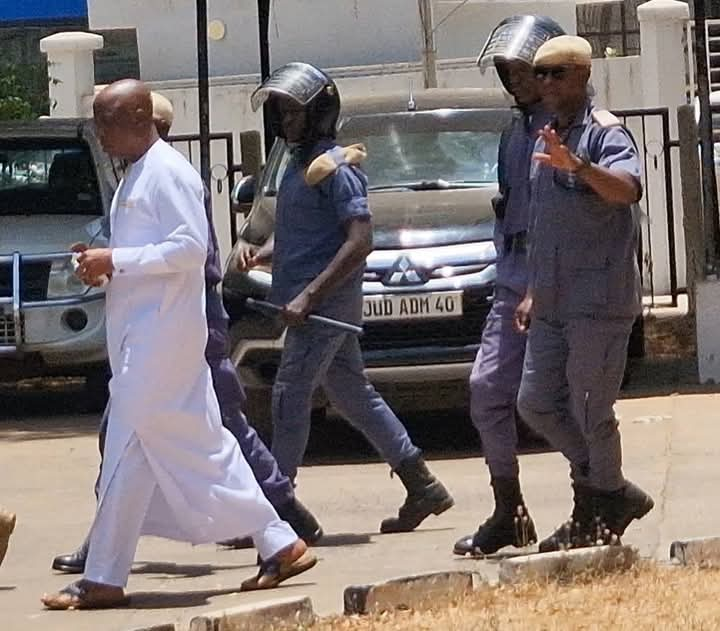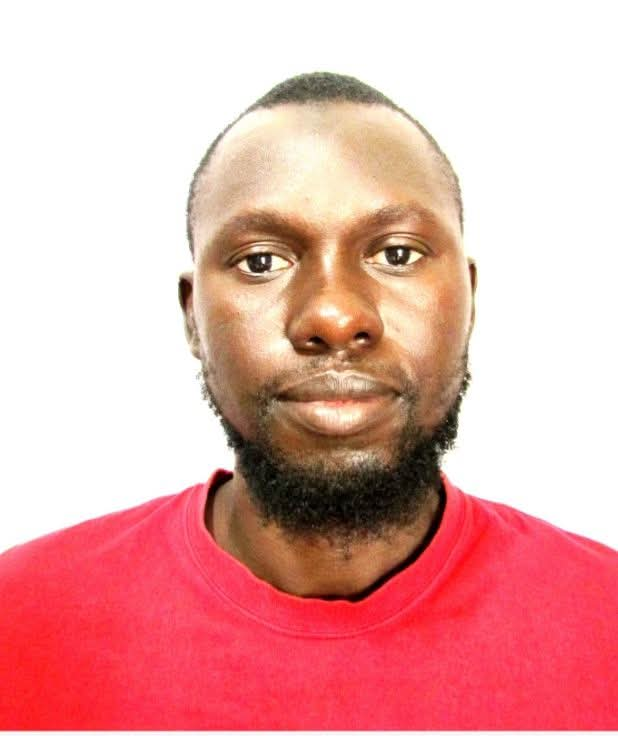
The Supreme Court today delivered its judgment in the appeal case of Yankuba Touray against his death sentence imposed by the High Court and upheld by the Court of Appeal which convicted him for the murder of Ousman Koro Ceesay in 1995.
The Supreme Court maintained the murder conviction against him by both the High Court and the Court of Appeal. However, the Supreme Court set aside the death sentence imposed by the two lower courts, substituting it with a sentence of life imprisonment.
Yankuba Touray appealed to the Supreme Court against the decision of the Court of Appeal, which earlier dismissed his appeal against his conviction and the death sentence by hanging delivered by Justice Ebrima Jaiteh of the High Court.
Touray was arraigned for the murder of Ousman Koro Ceesay, a former Minister of Finance, in June 1995. The prosecution alleged that Touray, along with Edward Singhateh and Peter Singhateh, lured Ousman Koro Ceesay to the house of Yankuba Touray in Kerr Serign. Upon arrival at the house, Edward Singhateh, Alagie Kanyi (PW6), B.K. Jatta, Tumbul Tamba, Pa Louis Gomez, Peter Singhateh, and Yankuba Touray stroke the Deceased (Koro Ceesay) with a pestle-like object and other objects until he dies. His body was then transported and burnt beyond recognition along the Sukuta-Jambur Highway.
He denied the charges and the prosecution called 9 witnesses and tendered exhibits to prove their case. He opened his defence to prove his innocence, but the High Court found him guilty and subsequently sentenced him to death, he appealed to the court appeal, but the decision of the High Court was upheld.
He moved to the Supreme Court. Yankuba Touray’s grounds of appeal to the Supreme Court rested on ten grounds, challenging the evaluation of evidence by the lower courts, the reliability and corroboration of an accomplice witness’s testimony (PW6 Alagie Kanyi), the rejection of his alibi defence, and the jurisdiction of the lower courts to impose the death sentence.
The argument of parties: Appellant (Yankuba Touray): Represented by A. Sisohor, the Appellant argued that the prosecution failed to prove the charge of murder beyond a reasonable doubt.
He contended that the evidence relied upon, particularly the testimony of the accomplice witness was unreliable and lacked sufficient corroboration.
Touray also argued that his defence of alibi was not properly considered. Crucially, he challenged the jurisdiction of the lower courts to impose the death sentence, citing the legal status of the death penalty at the time of the offence.
Respondent (The State): Represented by A. A. Wakawa, maintained that the prosecution had presented sufficient evidence to prove Touray’s guilt beyond a reasonable doubt.
He argued that PW6 was a competent witness whose evidence was materially corroborated by other independent evidence. The State Counsel contended that the defence of alibi was not successfully established. While defending the death sentence, state counsel conceded during the Supreme Court hearing that the sentence might need to be altered in light of the Death Penalty (Restoration) Act.
The judgment of the Supreme Court presided over by Chief Justice H.B. Jallow and a panel of five justices upheld the conviction of Yankuba Touray for the murder of Ousman Koro Ceesay.
Justice A. Bah, who delivered the lead judgment, reviewed the evidence and the findings of the lower courts. The Supreme Court found that the Court of Appeal had properly dealt with the issue of the accomplice witness and that there was sufficient independent evidence to corroborate the testimony of PW6 Alagie Kanyi, linking the Appellant to the crime.
The court also affirmed the lower court’s rejection of Touray’s defence of alibi, noting that it was raised belatedly during the trial and lacked the necessary particulars and supporting evidence. The Supreme Court concluded that the prosecution had indeed proven the case of murder against the Appellant beyond a reasonable doubt.
On the issue of sentencing, the Supreme Court found merit in the Appellant’s argument. The court noted that the murder occurred on June 24, 1995, a period when the Death Penalty (Abolition) Act of 1993 was in effect, having abolished the death penalty for murder and replaced it with life imprisonment. The Death Penalty (Restoration) Act of 1995, which reinstated the death penalty, came into force on August 10, 1995, after the commission of the crime.
Citing the proviso in the Death Penalty (Restoration) Act, which stated that “a person shall not be sentenced to death on a charge of murder or treasonable offence committed between the period of enactment of that Act and coming into force of this Act,” the Supreme Court held that the death sentence imposed by the High Court and affirmed by the Court of Appeal was unlawful.
The Supreme Court set aside the death sentence and substituted it with a sentence of life imprisonment, effective from the date of the original sentence by the High Court (July 14, 2021).
The Supreme Court clarified that its judgment or findings apply solely to the Appellant and do not affect any other individuals alleged to be involved in the crime who were not on trial in this case.
By :Kexx Sanneh




